Our first and last names are crucial to our identities. After all, they are literally the things that people can distinguish us by. But have you ever thought about how humanity came to the point of having both names and surnames?
If you have, this TikToker has an answer – they evolved from descriptions of people. Interestingly, nowadays our phone usage habits are directly mirroring this old process, which leads to the implication that it can influence how surnames will look in the future.
More info: TikTok
Sometimes we don’t think about how even our simplest actions can be a part of something way bigger
Image credits: entomologynerd
An etymologist Adam Aleksic made a video explaining how the way we add contacts to our phones mirrors the way surnames were created
One of the things that everyone has no matter what is a surname. Even Adele, who we are used to referring to by only her first name (by the way, it’sAdkins).
Usually, we inherit our surnames from our parents or get them from our spouses. This means that a last name is something that indicates what family a personbelongsto. Well, unless they change it.
The oldest known surname dates back to Ireland in the year 916. It was the name “O Cleirigh” (O’Clery.) At that time, surnames weren’t that common, as according to theEncyclopedia Britannica, surnames came into existence in the Middle Ages, starting in the 11th century.
Image credits: etymologynerd
In it, he listed 4 different types of descriptions we use for our contacts and how similar ones evolved into our current last names
Before they existed, people usually had only first names, but as the population expanded, the need for differentiation arose. Interestingly, the way those differentiations were created mirrors our present-day behavior.
That’s what TikTok user@etymologynerd pointed out. His full name is Adam Aleksic, and on said platform, he has over 600K. Let’s not forget hisInstagram, where currently he has a whopping 1.3M followers.
Image credits: etymologynerd
For example, we describe people with occupations, like how the surname “Smith” evolved from “blacksmith”
He explained that when we put a contact in our phones, we write a person’s name and some description, which is exactly how last names were created – from people’s descriptions.
Adam Aleksic gave plenty of examples of this. Like describing someone by their occupation. Apparently, it’s the same as someone having the surname “Smith,” which originated from “blacksmith.” Someone in the comments under the video said their grandfather’s surname and occupation was Carpenter. Maybe singerSabrina Carpenter’s ancestors were also in this profession?
Image credits: etymologynerd
Or we describe people by the place we met them or where they’re from, like the surname “Bush,” which meant their ancestors came from a bushy area
We can also define a person by the place we met them or where they’re from. Like “Joanna math class” or “Raina Minnesota.” This kind of description evolved into surnames like “Bush” for someone whose ancestors came from a bushy area.
Even our perception can be a basis for surname evolution. A. Aleksic’s example of this was the last name Swift, evolving from a description of someone who is perceived to move quickly. Well, the best-known person with this surname, Taylor Swift, is actually moving pretty quickly – in the last 5 years, she released 5 newalbums and 4 re-recorded ones. Plus, she toured half of the world with herrecord-breaking Eras Tour.
Image credits: CHUTTERSNAP / Unsplash (not the actual photo)
Then, there are surnames coming from adjectives – for example, the surname “Swift” for a person who is perceived to move quickly
Coming back to the surnames, Adam named one more category of description that evolved: relationships. For instance, back in the day, people were named based on their relations to their fathers, which with time turned into surnames like “Johnson” and “Richardson.”
Nowadays, sometimes we describe our contacts like “Ina bestie” or “Sam Tinder,” which are based on our connection with that person. Since language is known to beflexible, meaning it can adapt to new conditions and demands, it’s possible that in the future these descriptors could also evolve into surnames. After all, it has happened in the past.
Image credits: Waldemar / Unsplash (not the actual photo)
We also describe people by the relationships we have with them, which back in the day turned into last names like “Johnson” and “Richardson,” meaning the sons of John and Richard
The video we just discussed gathered quite a lot of attention online, collecting over 3M views. People were thrilled to learn this new fact and didn’t shy away from sharing examples of clearly evolved surnames. Of course, they also made some jokes – for example, mentioning the last name Dickinson, with an implication that the original meaning could have been pretty funny, if a little dark.
Well, it’s fun to think about how our names, which are so important to ouridentities, came to be. Plus, it’s also very interesting to think that we might have something to do with how they will look in the future. As today’s video’s creator pointed out, we’re currently reinventing an old process in a modern way.
Watch the video here
People online were amazed to realize how our seemingly insignificant behaviors mirror such significant old processes, and so they shared surnames assuming their origins
Image credits: Daniel Thomas / Unsplash (not the actual photo)
Poll Question
What do you think about the future evolution of surnames based on how we currently describe people in social settings?
I think it's exciting to ponder, I wanna meet someone surnamed 'IT-developerson'
I don't think it's likely to happen, we already have enough surnames for everyone.
I'm hoping to avoid Mr. Timothy Tinder for as long as possible.
All of this is just a bit too far out for me.
It is new to me. I didn't know this. Besides, some things will always be new to someone who doesn't know yet. :)
Surnames existed in the Roman Empire. A Roman name would be made by a personal name (first name) called Praenomen; a surname, that came from the family (or "Gens"), called "Nomen"; and a nickname, called "Cognomen", that the person would acquire during his life and would often pass to his children to indicate the branch of the family they were part of. Emperor Caligula was actually born Gaius (first name) Julius (from the Gens Julio-Claudia) Caesar Germanicus (from the nickname of the father, who was a general in the German Campaign), and later took his own cognomen of "Caligula" from his habit of wearing military sandals (Caligae).
People who was not part of the major families sometimes used their father's name or profession as surname, immigrants used their tribe of origin and women sometimes take took feminine version of their husbands surname. Conventions changed a bit, but surnames constantly existed since 100 BC.
Load More Replies...In Switzerland there is a peculiar last name "Henzirohs" and one of my clients explained to me how his name came to be. Seems somewhen in past centuries there was a blacksmith going from farm to farm in the region and asked "Hend Sie Ross" (which translates to "Do you have horses") looking for work. And people startet calling him that, so the name Henzirohs was born 😅🤣 Anyways if I were to put names in my phone like this I would never find anyone ever again. My system is "last name-first name". 😅😇🙈
It is new to me. I didn't know this. Besides, some things will always be new to someone who doesn't know yet. :)
Surnames existed in the Roman Empire. A Roman name would be made by a personal name (first name) called Praenomen; a surname, that came from the family (or "Gens"), called "Nomen"; and a nickname, called "Cognomen", that the person would acquire during his life and would often pass to his children to indicate the branch of the family they were part of. Emperor Caligula was actually born Gaius (first name) Julius (from the Gens Julio-Claudia) Caesar Germanicus (from the nickname of the father, who was a general in the German Campaign), and later took his own cognomen of "Caligula" from his habit of wearing military sandals (Caligae).
People who was not part of the major families sometimes used their father's name or profession as surname, immigrants used their tribe of origin and women sometimes take took feminine version of their husbands surname. Conventions changed a bit, but surnames constantly existed since 100 BC.
Load More Replies...In Switzerland there is a peculiar last name "Henzirohs" and one of my clients explained to me how his name came to be. Seems somewhen in past centuries there was a blacksmith going from farm to farm in the region and asked "Hend Sie Ross" (which translates to "Do you have horses") looking for work. And people startet calling him that, so the name Henzirohs was born 😅🤣 Anyways if I were to put names in my phone like this I would never find anyone ever again. My system is "last name-first name". 😅😇🙈

 Dark Mode
Dark Mode 

 No fees, cancel anytime
No fees, cancel anytime 




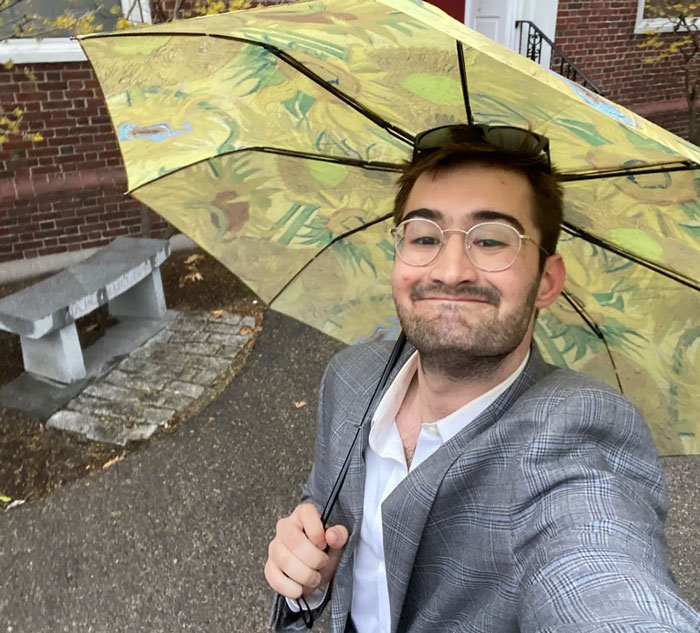

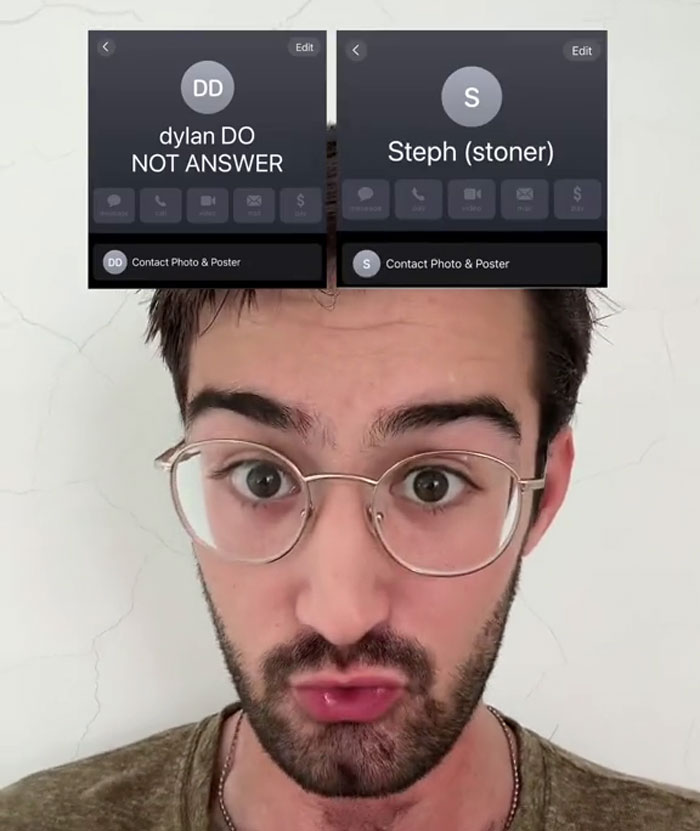


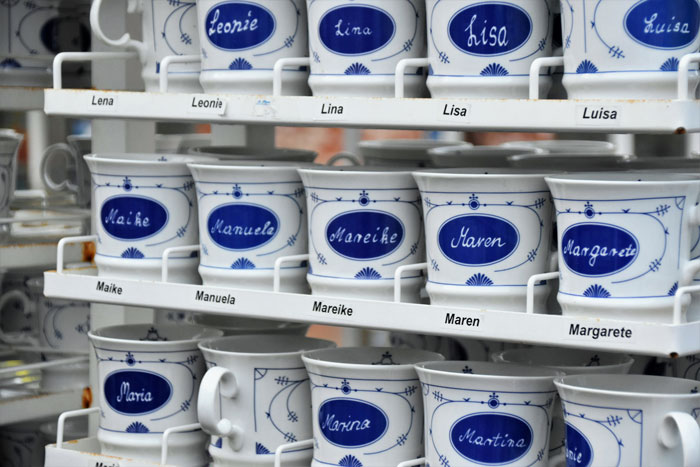






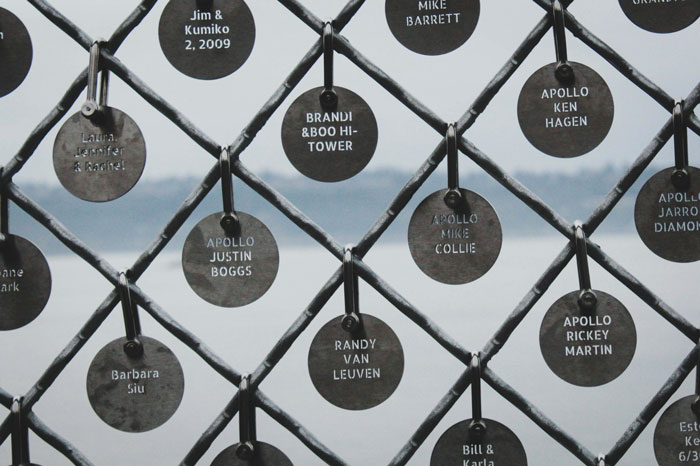






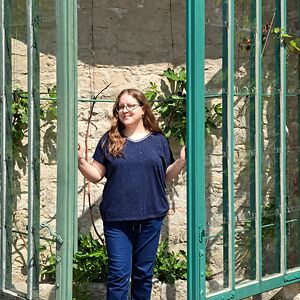

























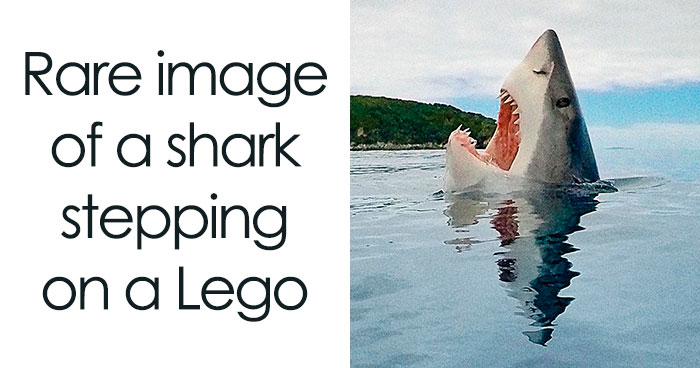

















21
30